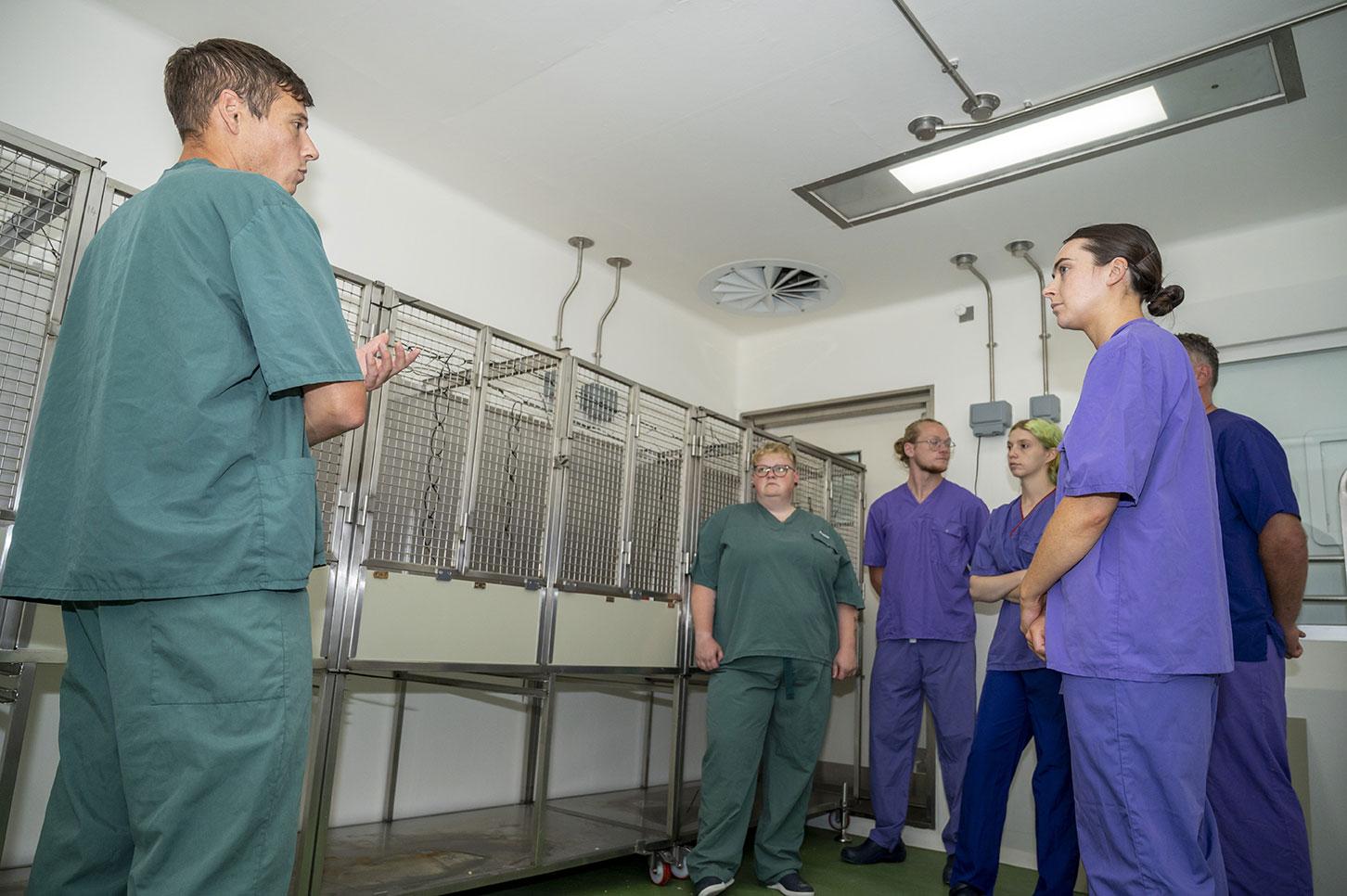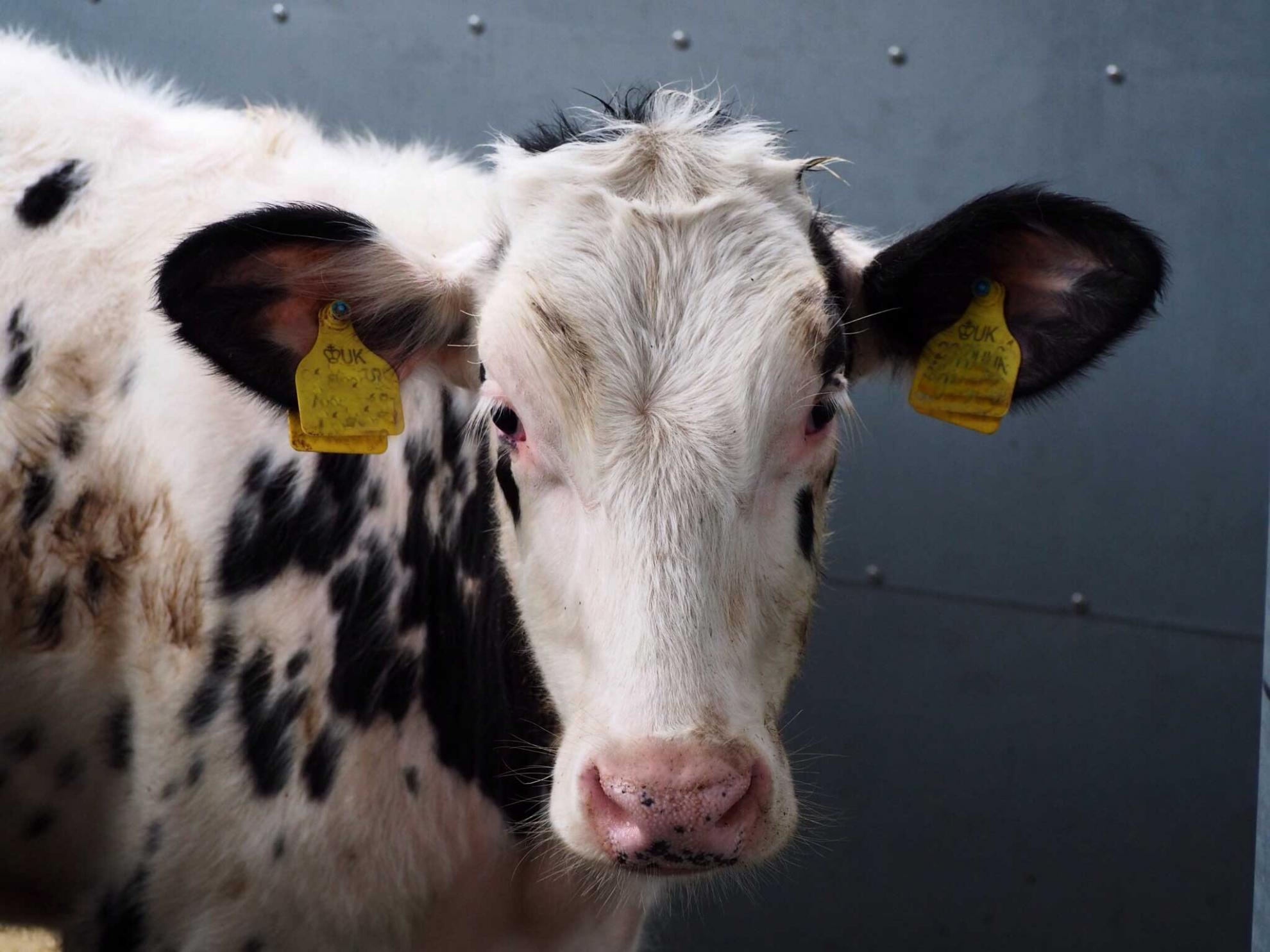Animal technicians from The Pirbright Institute and the Animal and Plant Health Agency (APHA) are collaborating to share expertise and best practice in animal care.
The teams, who specialise in large animals, are exchanging information and learned experience on issues including housing, enrichment of animal environments, the culture of care and animal health.
Pirbright’s large animal team visited the APHA at Weybridge in May, with a return visit to Pirbright in September.
Animal technician Ollie Trussler, who helped organise the Pirbright visit, said: “Our initial meetings discussed issues including enrichment for animals and culture of care, but after the initial visit, productive conversations continued in order to arrange a similar information exchange with the poultry team and a visit for APHA Technicians to come to Pirbright.
“Over two days, attendees from APHA Weybridge visited Pirbright and were given a virtual tour of our large animal facilities, including an in-depth walk through the Biggs facility. Presentations were shared on our refinement projects within Pirbright’s Animal Services team, such as leg banding and enrichment, as well as a general overview on husbandry practices and building functions.”
The collaboration has led to closer working and effective information exchange, allowing Animal Technicians to connect with peers outside their usual workplace.
Jess Drage, an APHA animal technician, said: "APHA's visit to Pirbright was very insightful. It was great to discuss and share ideas that will no doubt help enhance the work we do at both establishments. We look forward to continuing our work and exchanges with colleagues at Pirbright to deliver great scientific services and enhance animal welfare whilst doing so!"
Both teams aim to continue to share ideas and exchange findings from projects to develop shared learning.
The Pirbright Institute, funded by the UKRI Biotechnology and Biological Sciences Research Council (BBSRC), and the APHA work to apply the principles of the 3Rs - Replacement, Reduction and Refinement - developed over 50 years ago as a framework for humane animal research.
All experimental protocols are subject to scrutiny by the ethical review process before submission to the Home Office for licencing approval.

